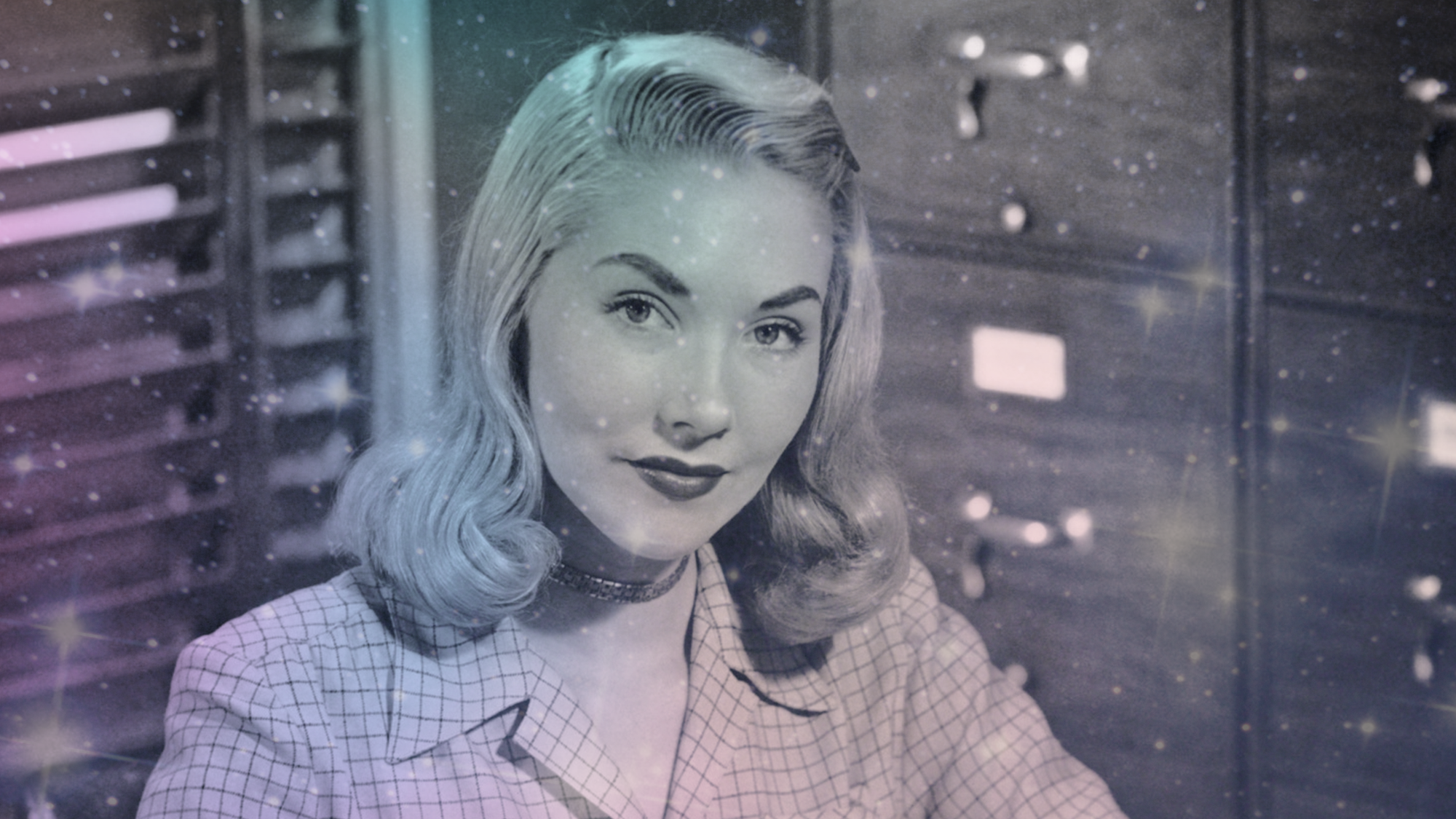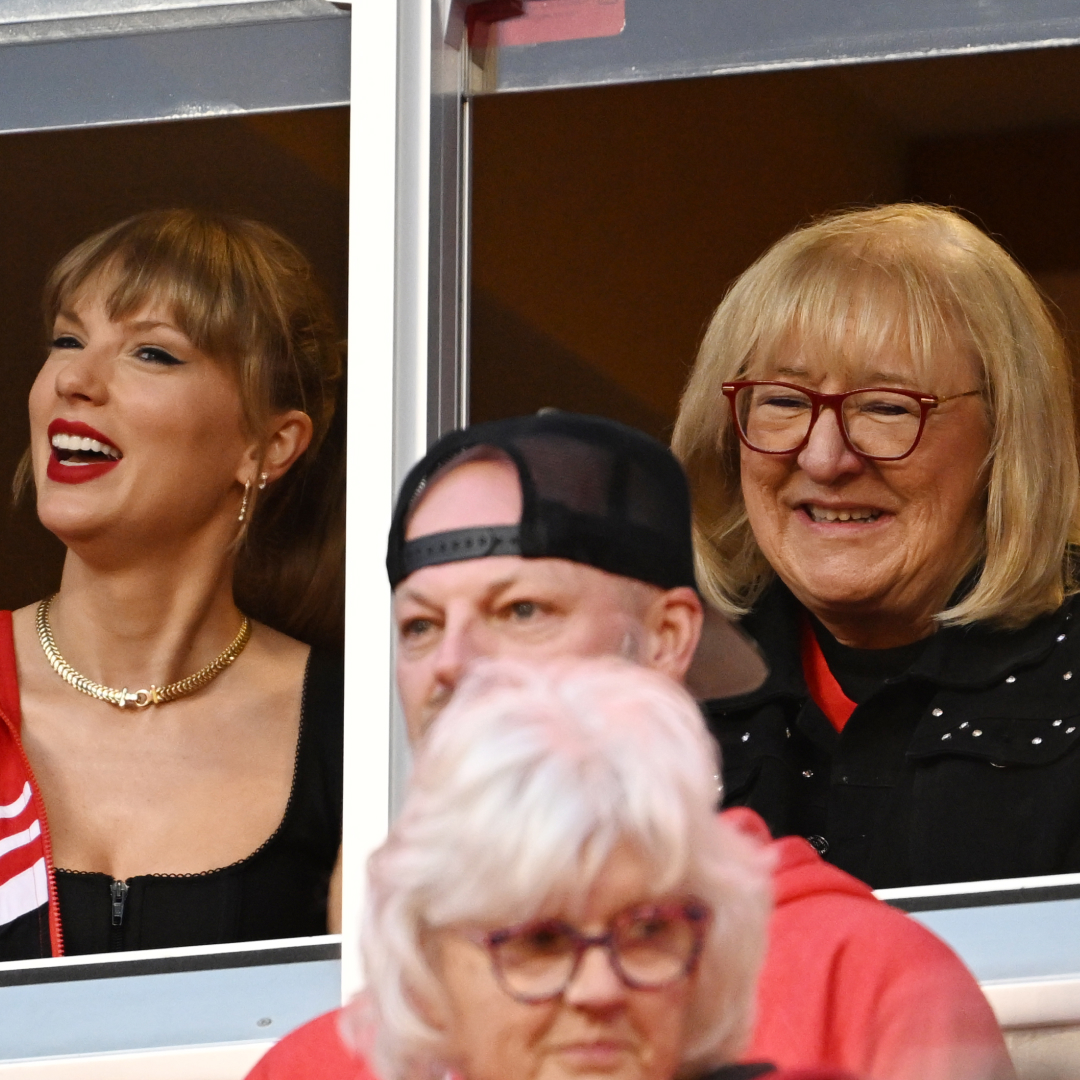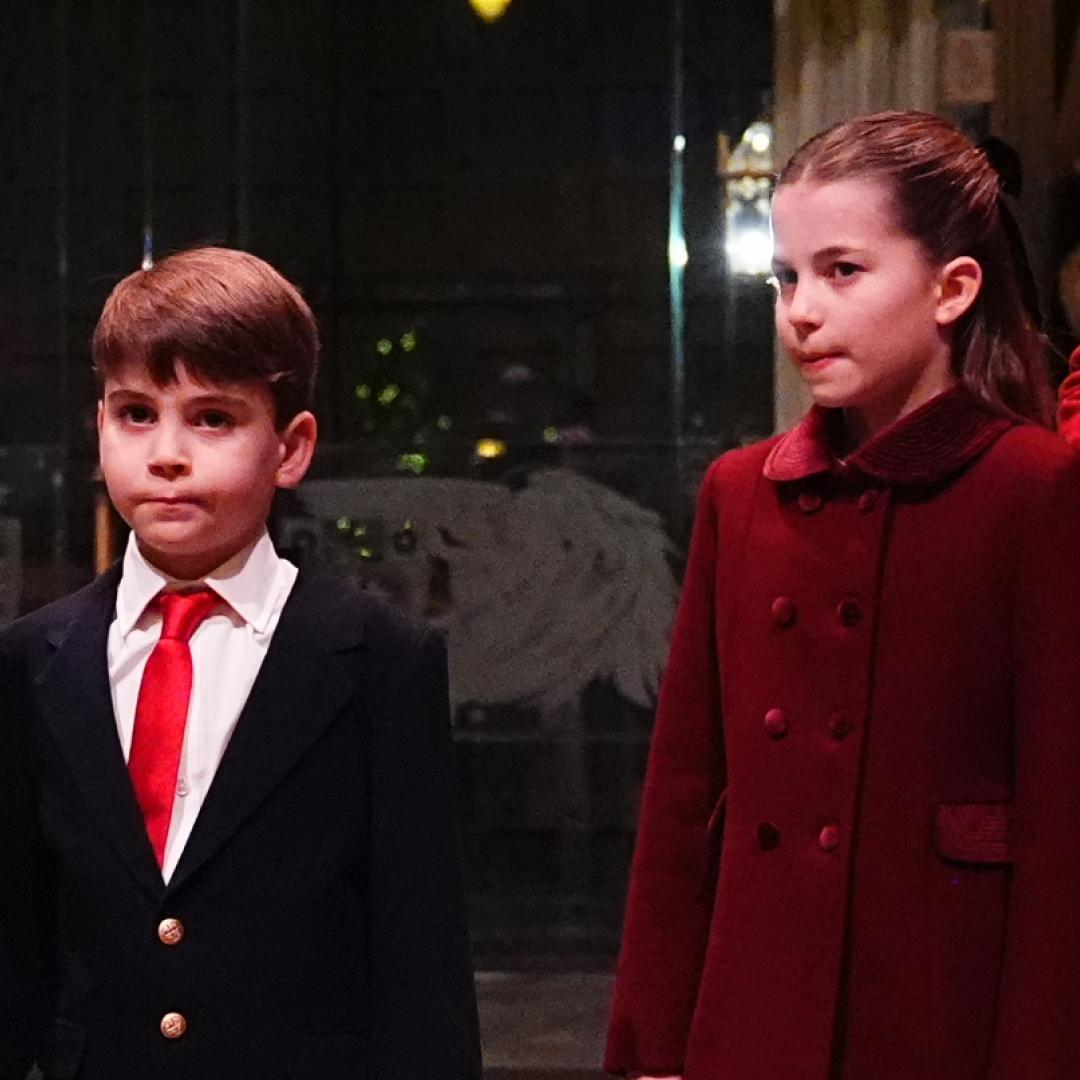When Did Work Get So Woo-Woo?
As executives from startups and Silicon Valley giants turn to astrology, energy healers, and sound baths, Tatiana Boncompagni wonders, Can a belief in the metaphysical launch us to new career heights?

Before every public-speaking engagement or big client meeting, Suzana Apelbaum, a head of creative for Google, taps her forehead and makes a figure eight with her arm—an “energy medicine” ritual Apelbaum, 46, says helps her focus and protects her energy field from the audience. She also won’t make major business decisions when Mercury is in retrograde: “That is a period that tends to generate lots of confusion, and there are big chances you’ll make a decision you’ll regret later.”
Jessica Hanson, CEO of beauty behemoth AmorePacific, is also guided by astrology. A Virgo, she fights against her perfectionist tendencies when leading her team. “Whether through personality tests or leadership-style courses, ultimately the more we understand our own thought process and emotional triggers,” says Hanson, 42, “the better we can adapt and inspire others.” Heather Hartnett, the 36-year-old CEO and partner of startup incubator Human Ventures, has a close group of seven friends—all female CEOs and founders—who engage in astrology, personality tests, and Transcendental Meditation. “While professional coaches are one aspect of leveling up,” she says, “increasing self-awareness is another skill that will only result in being a better you.”
Consulting the cosmos for career guidance might sound woo-woo, but lately more and more high-powered execs and entrepreneurs are doing exactly that. Just like meditation became trendy a few years ago, thanks in part to endorsements from Twitter’s Jack Dorsey and Salesforce’s Marc Benioff, new age practices are earning a following among power women. Whitney Tingle and Danielle DuBoise, the 33-year-old cofounders of Sakara Life, the organic-meal-delivery service, consult a shamanic energy-medicine practitioner and Reiki master to help them tap into their “soul GPS.” Marika Frumes, 36, a cofounder of women’s community network HER USA and director of training, development, and community at Standard Hotels, relies on astrology, clairvoyance, and sound healing to help her hone her intuition and make herself a “more aware employee and a significantly more ‘in tune’ leader.” And Katrina Markoff, the 46-year-old founder and CEO of Vosges Haut-Chocolat, works with a crystal healer, a clairvoyant, and an energy worker to maintain her super-zen attitude. “When you align with your purpose and set your intentions, the universe conspires with you,” she says.

For some entrepreneurs, like Manhattan-based fashion designer Daniella Kallmeyer, a little mystical guidance can reap tangible rewards. Last spring, she was at a crossroads in her career: Her line of upscale, minimalist basics was profitable, but it had stalled. “I didn’t know what the next phase of the business was,” says Kallmeyer, 33. Then, during a weekend trip to a friend’s country house upstate, Kallmeyer met Liz Tran, the founder of Reset NYC, a spiritual-cum-career-coaching studio that happened to be near Kallmeyer’s apartment. She started seeing Tran, a former executive at a venture-capital firm, for astrological readings, meditation, and executive coaching. “We created a mantra for me—surrender to this moment, live in the certainty of abundance—that changed my relationship with money,” says Kallmeyer. To her surprise, she received a phone call from a real estate agent asking if she wanted to run a two-month pop-up shop in her neighborhood. It was an opportunity she normally would not have been prepared to undertake. Can I do this? Do I have the capacity? she asked herself, eventually deciding (with Tran’s encouragement) to go for it. The pop-up was such a success that Kallmeyer recently signed a five-year lease on the space and says her business has “done a 180” in three months, with revenue projected to double this year. The difference, she says, was “surrendering to this abundance mentality.”
“The opposite is scarcity,” Tran explains. “If we subconsciously believe the world is against us, then we will seek out ‘facts’ that confirm this. If we assume the world is generous, we will similarly read into situations with optimism and hope. In business, having an abundant mind-set is essential; otherwise, we’ve already written ourselves off before we’ve begun.” Tran is part of a growing niche of “career healers” taking professional counseling one step further, incorporating new age practices with traditional coaching modalities to address a client’s spiritual well-being as well as leadership skills.
Taking care of the emotional, physical, and energetic body is essential in success. If we're operating from an energetic place of scarcity, that will impact our ability to show up as our best selves. –Marika Frumes
Traditional executive coaches, who can charge anywhere from $150 to more than $1,000 per hour, typically complete academic programs recognized by the International Coach Federation and may use personality tests (such as the Birkman Method or Myers-Briggs Type Indicator) as well as so-called 360 degree or multirater assessments (reviews from coworkers, supervisors, and subordinates). Their purpose is “to expand awareness of what’s in the way of progress toward goals,” explains Lynn Schoener, a Cincinnati-based executive and team coach.
Chloë Drimal, Snapchat’s 14th employee, who has since founded mindfulness social club Yoni Circle and advises horoscope app Sanctuary, was the coworker who kept crystals on her desk, saged the office, and gave colleagues their natal charts for their birthdays. She worked “with alternative-healing practitioners—shamans, energy healers, emotional-code practitioners—all of whom helped me shed layers of self, which has allowed me to work from a clearer headspace while I focus on reaching my dreams.” Drimal, 28, says she had deeper results with energy healers than with therapists and executive coaches: “Their work helps me release external opinions or anxieties in order to connect more deeply with myself.”
Stay In The Know
Get exclusive access to fashion and beauty trends, hot-off-the-press celebrity news, and more.
But many healers and coaches suggest that you unlock your full potential when you align your day job with your soul’s purpose. “Think of us as Sherpas, guides who help you cartograph your destiny and navigate the internal and external terrain of life—ambition, roots, communities, and beyond—to get from where you are to where you’re called to be,” say Seattle-based spiritual and business advisor duo Tay and Val, who conduct “energy audits” on their clients’ lives and businesses.
“When I started, I had clients mostly coming to me for their health or to improve their love lives,” says Madi Murphy, a shaman (and cofounder of Montauk Juice Company) based in Manhattan and Montauk, Long Island. “But now, they’re established bosses wanting to get to the next level or looking to make a big switch while tapping into their soul’s purpose.” A two-hour consultation with Murphy, a certified integrative-health coach, Reiki healer, and shamanic energy-medicine practitioner, costs $444 (in numerology, four is the universal number of building new foundations) and includes an energy clearing, birth-chart reading, and discussion of goals.

Of course, it takes a heck of a lot more than wishing on a star to build a multimillion-dollar business. But many of these practices are grounded in the same widely accepted fundamentals of positive psychology: the importance of self-esteem and confidence building, clarity around goals, and a focus on gratitude and resilience. Tran, for example, uses birth charts to teach clients about their strengths so they can lean into them instead of obsessing about their weaknesses. She says she sees many women work hard to attain a specific professional goal—say, making vice president by age 32—but then feel deeply dissatisfied with their accomplishment. “You spend 10 years climbing the corporate ladder only to realize it’s leaning against the wrong wall,” says Tran, who typically charges $250 for a one-on-one coaching session. The question that looms at that stage is, what’s next?
Jessica Joines, a Los Angeles–based executive coach, helps clients create greater accountability in their professional lives by recognizing that they are more in control of their life purpose as reflected in their career trajectories than they realize. “When you master your perception, you master your reality. It’s the difference between perceiving the world as something happening to us versus something happening for us,” explains Joines, who runs an annual retreat for C-suite women that’s one part professional development and one part meditation and spiritual growth. One of the guests at Joines’s retreat last year was Stephanie Nadi Olson, the founder of We Are Rosie, an Atlanta-based freelance-talent marketplace. After attending the retreat and hiring Joines as her coach, Olson says, she was able to shift her mind-set from “things are happening to me” to “things are happening for me.” Since founding her company, Nadi Olson, 35, has built a company with revenue of roughly $5 million. A change in how she made key decisions, like who to hire and which clients to go after, allowed her to scale the business so quickly, says Joines.
Similarly, Alyssa Ravasio, cofounder and CEO of Hipcamp (like the Airbnb for campsites), periodically writes down fears and sets them on fire. She did it for the first time six years ago, right when she was about to launch her company. “I was terrified I was going to fail,” says the San Francisco–based entrepreneur. The next morning, after burning all her fears, a practice she had learned from an indigenous healer, Ravasio felt more calm and courageous. “When you’re a leader, the single most important thing you bring to the table is your state of mind,” says Ravasio, 31, who recently closed a Series B funding round of $25 million.

Many of the fairy-dust effects of new age practices can be explained by what we know about how the brain and nervous system work. Take, for instance, new-moon ceremonies, which often include a practice similar to the one described above of writing down a goal on a piece of paper and then setting it on fire or putting it under a bed pillow. What’s really happening? “Your reticular activating system [RAS] notices what you put your attention on. The RAS is a bundle of nerves in your brain stem that acts like a filter, filtering out unnecessary information so the important stuff gets through,” explains Sanam Hafeez, a New York City–based neuropsychologist and adjunct faculty member at Columbia University. It’s the reason intention-setting is thought to work. If you set an intention to start a business, suddenly you start to notice when a friend mentions her sister just got hired by a venture-capital firm or that headline about a new incubator for startups in your industry. It’s not serendipity or the universe; it’s that you are primed to hear and then act on that information. “The RAS helps you see what you want to see and, in doing so, influences your actions,” Hafeez continues. “From a medical point of view, mental-health professionals don’t focus on mystical things. We focus on elements and behavior training of the mind that has been backed by science. We certainly do believe in reframing negative thoughts, eliminating catastrophic thinking, goal-setting both short and long term, and creating a mental movie of how you picture a goal or situation ideally playing out in the future.”
Katia Verresen, a Silicon Valley– and New York–based executive coach, counsels clients to use their RAS to their advantage by keeping a gratitude journal. “One way to do this is every night, review your entire day like a movie and write down what you are grateful for,” says Verresen, who counts head of Facebook app Fidji Simo as a client. Over time, “you will systematically start to notice things to be thankful for during the day.”
Suzie Baleson, 35, left behind a career in finance to start Wellth Collective, a wellness-focused experiential marketing firm. After getting over her initial skepticism, she started working with energy healer and mindfulness guru Deepak Chopra, one of her current clients. “My mindfulness practice allowed me to process stressful moments more clearly. It gave me moments of pause before reacting. I learned that the only thing I can control is myself,” says Baleson, who cites meditation and journaling as her favorite techniques to combat the constant pressure that comes with starting a business.

L.A.-based Reiki practitioner and empowerment coach Kelsey J. Patel says she encounters women dealing with burnout frequently in her practice, which is based on the belief that we have energy channels in the body that, when clogged or imbalanced, can inhibit our emotional, mental, and physical well-being. “We are living in the age of anxiety,” says Patel, who has noted that women, who tend to make up the vast majority of her clientele, believe they have to “hustle and grind” to accomplish their goals. Beneath that assumption, explains Patel, is “self-doubt or the fear that the dream they have is not going to happen.”
“Having doubt is normal,” adds Verresen. “The question is, how are you going to manage it? Are you going to believe the fear or get back on the horse?” New York–based speaker and coach Jen Mazer created a 40-day online Manifestation Masters course to help women turn their dreams into reality. One client, Kim Marchese, started a successful shared-office space for women in Omaha, while another, Amy Nobile, started online-dating consultancy Love, Amy in New York with a months-long waiting list. “Manifesting is less about making things happen and more about trusting and allowing and believing,” says Mazer, whose clients are looking for someone to validate their ideas. “It’s so much about permission.” Being told “Yes, you can” is critical for an executive attempting to innovate or an entrepreneur seeking to disrupt an industry. As adults, Verresen echoes, we often feel like we shouldn’t need to hear it, but most of us still need to be told explicitly, “You are capable. You are right to do this.” “I often remind my CEO clients to give permissions to their executive teams,” she says. “It surprises them because they already know they are capable, yet every time, the result is ‘Wow, that accelerated things and unlocked blocks.’ Whether we are men or women, we are trained to ask for permission.” Put that way, what a traditional career coach and one armed with birth charts and sage sticks do aren’t so dissimilar. Whatever you believe, success first requires a belief in yourself.
This article originally appeared in the November 2019 issue of Marie Claire.
RELATED STORY

-
 Travis Kelce's Mom Reportedly "Liked" a Comment About His Future as a Dad
Travis Kelce's Mom Reportedly "Liked" a Comment About His Future as a Dad...and then removed it.
By Lia Beck
-
 Prince Louis Will Soon Be Allowed a Special Privilege That Prince George and Princess Charlotte Already Have
Prince Louis Will Soon Be Allowed a Special Privilege That Prince George and Princess Charlotte Already HaveThe youngest Wales child will turn 7 on April 23.
By Kristin Contino
-
 $20 and 30 Minutes Is All You Need for a Vacation-Level Glow
$20 and 30 Minutes Is All You Need for a Vacation-Level GlowSelf-tanner secrets, according to a beauty director.
By Hannah Baxter
-
 Peloton’s Selena Samuela on Turning Tragedy Into Strength
Peloton’s Selena Samuela on Turning Tragedy Into StrengthBefore becoming a powerhouse cycling instructor, Selena Samuela was an immigrant trying to adjust to new environments and new versions of herself.
By Emily Tisch Sussman
-
 This Mutual Fund Firm Is Helping to Create a More Sustainable Future
This Mutual Fund Firm Is Helping to Create a More Sustainable FutureAmy Domini and her firm, Domini Impact Investments LLC, are inspiring a greater and greener world—one investor at a time.
By Sponsored
-
 Power Players Build on Success
Power Players Build on Success"The New Normal" left some brands stronger than ever. We asked then what lies ahead.
By Maria Ricapito
-
 Don't Stress! You Can Get in Good Shape Money-wise
Don't Stress! You Can Get in Good Shape Money-wiseFeatures Yes, maybe you eat paleo and have mastered crow pose, but do you practice financial wellness?
By Sallie Krawcheck
-
 The Book Club Revolution
The Book Club RevolutionLots of women are voracious readers. Other women are capitalizing on that.
By Lily Herman
-
 The Future of Women and Work
The Future of Women and WorkThe pandemic has completely upended how we do our jobs. This is Marie Claire's guide to navigating your career in a COVID-19 world.
By Megan DiTrolio
-
 Black-Owned Coworking Spaces Are Providing a Safe Haven for POC
Black-Owned Coworking Spaces Are Providing a Safe Haven for POCFor people of color, many of whom prefer to WFH, inclusive coworking spaces don't just offer a place to work—they cultivate community.
By Megan DiTrolio
-
 Where Did All My Work Friends Go?
Where Did All My Work Friends Go?The pandemic has forced our work friendships to evolve. Will they ever be the same?
By Rachel Epstein